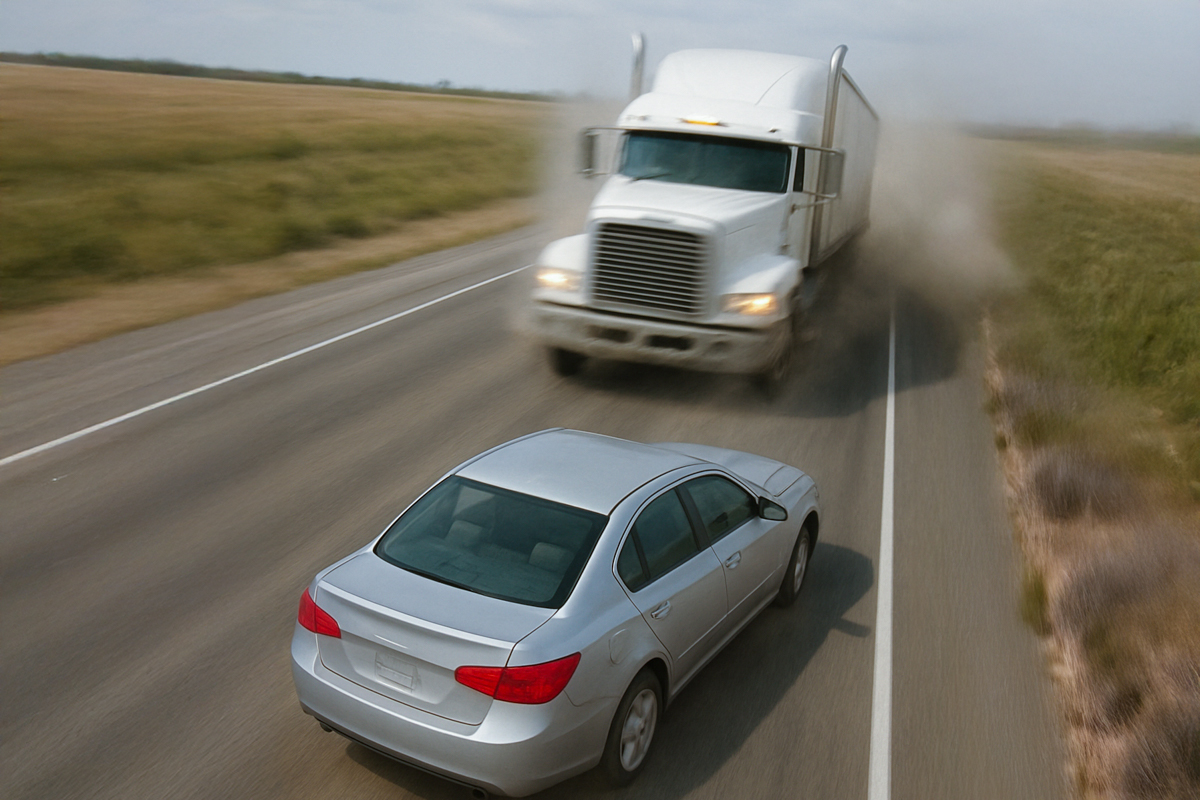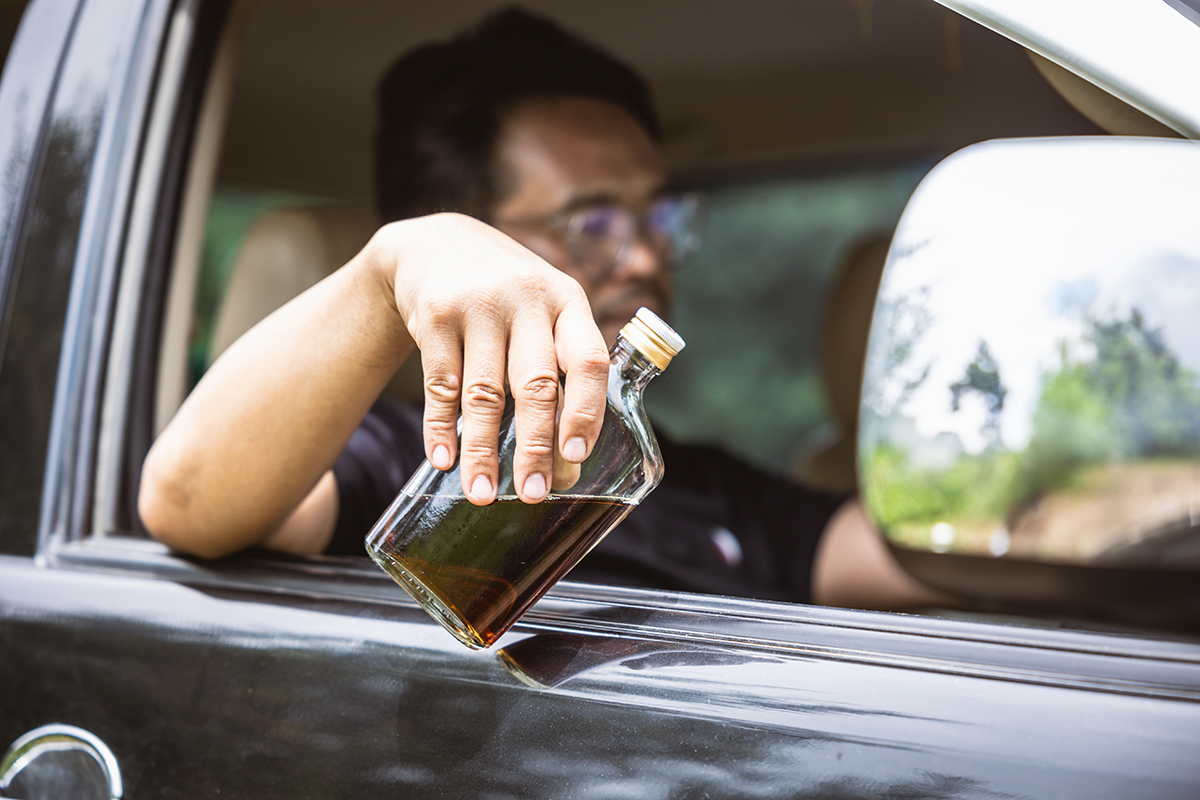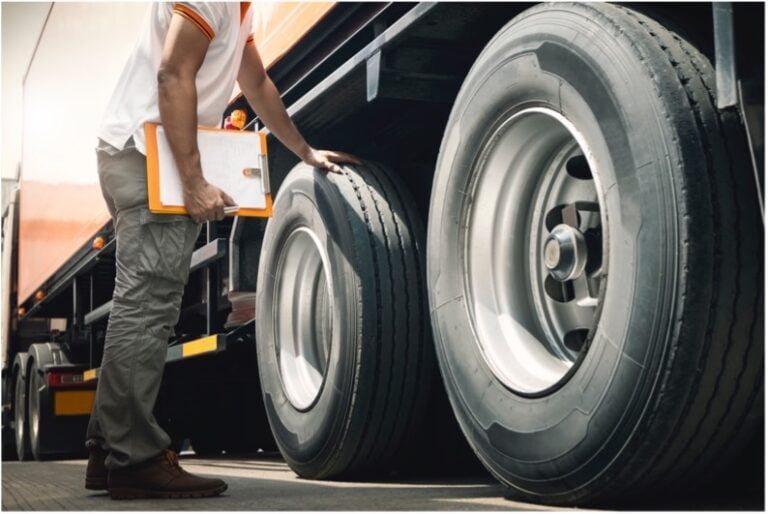When it comes to 18-wheeler wrecks, there are so many different factors that make this type of wreck much more complicated than a crash between two passenger vehicles. 18-wheelers are much heavier and can cause way more destructive damage, they are highly regulated by state and federal law, and there are several parties that could be held liable.
At Snellings Law, as 18-wheeler accident lawyers, we’ve seen the pain and suffering that comes in the aftermath of an 18-wheeler wreck. No one should have to deal with harm from these commercial vehicles. Sadly, sometimes they are unavoidable and you will need an 18-wheeler accident lawyer to get justice. We want you to know exactly what you’d be dealing with in the case that you do find yourself in a crash and need to contact an 18-wheeler accident lawyer.
Types of 18-Wheeler Crashes
Let’s state the obvious: 18-wheelers are big. They are taller, wider, and can weigh 20-30 times more than regular automobiles. Not only are they much bigger, but they have two major connecting parts: the cab and the trailer. Controlling both of these parts together is difficult, but drivers are trained to maneuver them safely.
However, sometimes things go wrong—and there are many different things that can cause an 18-wheeler crash.
Depending on the type of crash and the severity of the collision, multiple cars could become involved. Because these wrecks aren’t typically as cut and dry as standard automobile accidents, you’ll want to consult an 18-wheeler accident lawyer.
To get a better understanding of what types of accidents 18-wheelers can cause, here are a few types of 18-wheeler crashes:
- Rollover: Rollover accidents occur when a truck has overturned. The truck may rotate, sometimes more than once, and crash into other vehicles.
- Jackknife: This occurs when a truck begins to skid. Instead of correcting the skid, the trailer pushes the towing part of the vehicle so that it rotates in the opposite direction.
- Swinging Turn: When an 18-wheeler makes a right turn, they must swing the truck wide in order to complete the turn. In the process of turning, the back of the truck may swing into an adjacent lane. A collision occurs if there is traffic in that lane and the truck hits a nearby vehicle.
- Blind spot: 18-wheelers have large blind spots. When an 18-wheeler collides with a car hidden from its view, that causes a blind spot accident.
- Underride: This type of crash occurs when a car hits the back or side of an 18-wheeler. After impact, the car then slides wholly or partially underneath the trailer. These wrecks are extremely dangerous.
- Override: An override crash is a more severe rear-end collision. 18-wheelers are much taller than regular automobiles. When an 18-wheeler rear-ends a smaller vehicle because it is unable to stop or slow down, the 18-wheeler will sometimes slide over the top of the smaller vehicle. This type of crash is also extremely dangerous.
- Blowout: A blowout tire can happen to any vehicle, but on an 18-wheeler, a blowout can cause much more damage. It is hard to keep control of a vehicle amid a blowout, and since 18-wheelers are heavier and harder to control under normal circumstances, an 18-wheeler blowout on a highway can cause a major collision.
- Lost Freight: These accidents occur when loose or poorly packed freight is expelled from the trailer onto the road. Cars behind the 18-wheeler might get hit or crash into the freight, causing a wreck.
As you can see, 18-wheeler crashes are typically more damaging. An experienced 18-wheeler accident lawyer will be able to help recover the most money for these damages. At Snellings Law, our team of 18-wheeler accident lawyers can help accurately portray the severity of the crash so that you can receive the settlement you deserve and focus on healing.
Who Is Liable in an 18-Wheeler Crash?
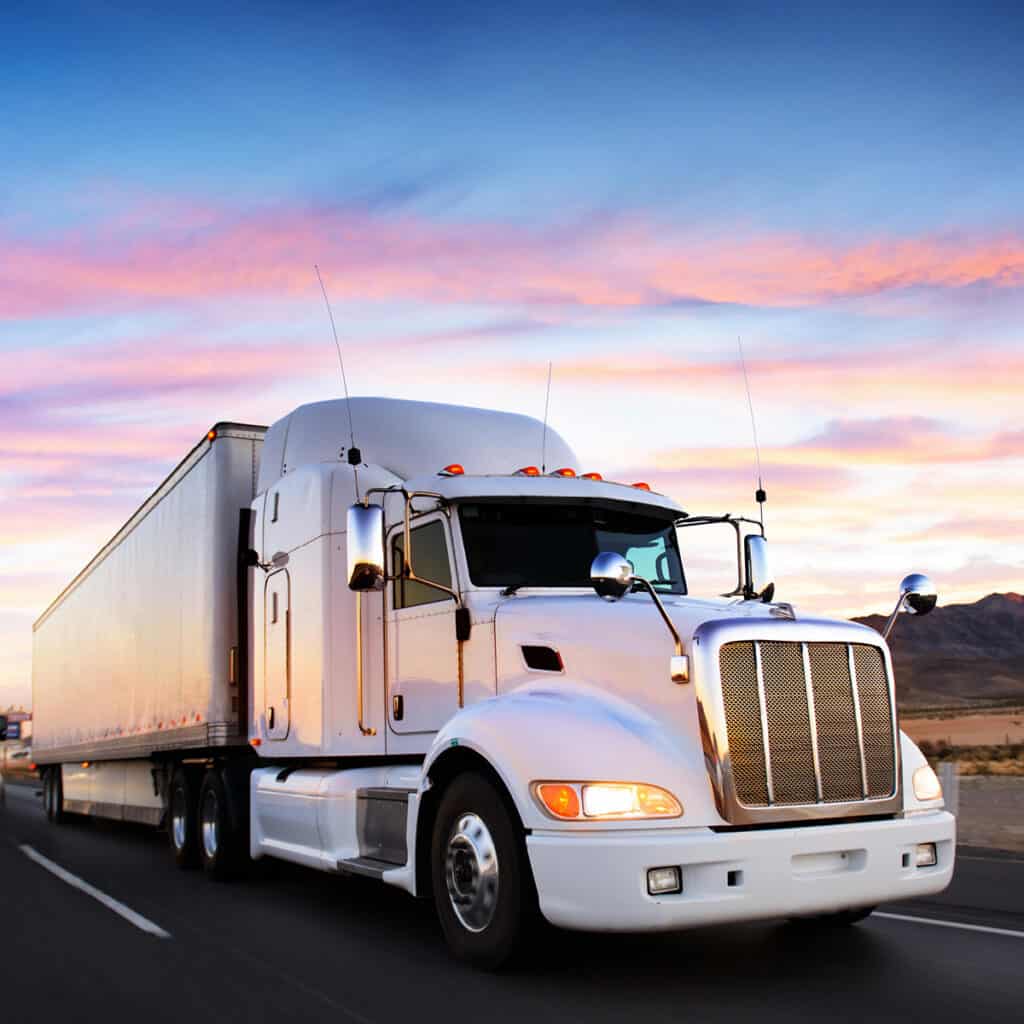
Liability in 18-wheeler accidents can easily become more complicated than in a crash involving two cars. 18-wheelers are commercial vehicles and a crash involving one may require an 18-wheeler accident lawyer. Not only could the driver be liable, but the driver’s employer, the trailer owner, maintenance companies, or the truck manufacturer could be liable as well.
If the driver of the 18-wheeler drove distractedly or recklessly, then they could be solely held liable. Driving under the influence of drugs or alcohol would be a reason for liability to fall on the driver. They could also be drowsy, fatigued, or texting and driving. If the driver of the 18-wheeler was operating the truck negligently, then he or she can be held responsible.
Sometimes liability in an 18-wheeler crash falls on the manufacturing company that built the truck. This would be the case if the truck had a manufacturing issue that led to the crash, such as a faulty brake. Other times, companies that serviced the 18-wheeler can be responsible for bad repairs that lead to a crash.
While the laws in Texas have changed recently, the driver’s employer could also be liable. There are many federal and state regulations for 18-wheeler drivers, and the employer could be held liable if they violated any of those regulations. If the employer set unreasonable work hours or delivery demands that forced the driver to work longer unregulated hours, the employer could be liable because they created a dangerous scenario.
Liability might also fall on the employer if they fail to properly screen to ensure that they hire reliable drivers, fail to give the driver proper training, or fail to ensure that the truck maintenance was up to par. Furthermore, if the truck’s cargo was improperly loaded and lost freight caused the wreck, the workers that loaded the truck could be held liable.
It is best to consult an 18-wheeler accident lawyer to determine the best steps to take after a crash with an 18-wheeler. As you can see, liability is complicated in 18-wheeler accidents. At Snellings Law, our team of 18-wheeler accident lawyers have experience and success with 18-wheeler cases, and we can set you up to meet with one of our 18-wheeler accident lawyers if you give us a call.
Insurance
When it comes to insurance, things get tricky. Sometimes companies employ their drivers as independent contractors. By doing this, they don’t have to name the driver as a full-time employee.
If the driver of the 18-wheeler is employed as an independent contractor, they may be required to have their own insurance. However, sometimes larger companies will still cover drivers with company insurance even if they are technically independent contractors.
Furthermore, if the driver is hired as an independent contractor but the company controls the conditions and hours of the employee, a court may find that the company is liable—even if the employee is not named a full-time employee. It is important to find out these details when exchanging information after an 18-wheeler wreck.
18-wheeler drivers are required by Texas law to have certain liability insurance policies. These policies range in amount depending on the truck’s size, the cargo’s weight, and whether the cargo is a hazardous material like concrete or oil.
However, just like with ordinary drivers, not all 18-wheelers are in compliance with insurance requirements. An 18-wheeler accident lawyer can provide you with the help you need to best deal with insurance adjusters.
What Damages Can Come From an 18-Wheeler Crash?
When you hire an 18-wheeler accident attorney after an 18-wheeler wreck, they are going to assess the damages suffered so they can make a claim to the at-fault’s insurance company. A “damage” in legal terms is a category of harm done by the at-fault party that they must remedy or repay in some way. Damages can be economic, non-economic, and/or punitive. An 18-wheeler accident attorney will help you determine what damages you might be able to recover.
Economic Damages
Economic damages are things you pay for after a wreck such as medical bills or repairs to your vehicle and personal items. Some people miss work after a wreck because they are too physically injured, suffering mentally, or unable to find transportation. Lost wages are an economic damage that can be claimed if the wages are lost because of the wreck.
Non-Economic Damages
Another type of damage is non-economic. Non-economic damages include the pain and suffering you experience after a wreck. Since these commercial vehicles are much larger than cars, the injuries that result from 18-wheeler wrecks are typically much more severe. Injuries caused by 18-wheelers can include:
- Bruising, swelling, and burns
- Lacerations and abrasions
- Disfiguration
- Muscle strains and tears
- Whiplash
- Soft tissue damage
- Internal bleeding
- Organ damage
- Nerve damage
- Chronic pain
- Broken bones
- Lost limbs
- Loss of mobility
- Back and spinal cord damage
- Paralysis
- Traumatic Brain Injuries
- Death
While 18-wheelers can cause severe physical injuries, the emotional and psychological turmoil 18-wheeler victims experience after a wreck can be worse. Sometimes victims may develop anxiety, depression, and/or PTSD, or their pre-existing mental health issues may worsen. General stress from dealing with the different elements of a wreck can also be listed as non-economic damage.
In our experience as 18-wheeler accident lawyers, the emotional and psychological effects of an 18-wheeler wreck can be the most damaging to victims. Insurance adjusters may not take these damages into consideration. An 18-wheeler accident lawyer will be able to best convey the severity of these damages to an adjuster or a jury.
Punitive Damages
Economic and non-economic damages are meant to repay a victim to restore justice. Punitive damages are meant to punish the at-fault party for especially reckless or intentional behavior. “These damages will be difficult if not impossible to receive without the help of an 18-wheeler accident lawyer.” I think that was it.
How to Avoid 18-Wheeler Crashes?
18-wheeler drivers go through training so that they can operate their large trucks on the road safely. However, sometimes they don’t drive safely and cause a wreck. While wrecks caused by someone else can sometimes be unavoidable, there are some things you can do to try and avoid finding yourself in one of these situations.
Don’t get trapped in a blind spot.
If possible, try not to drive in an 18-wheeler’s blind spot. When it comes time to pass an 18-wheeler, pass them quickly and safely. You don’t ever want to be caught in a situation where the driver crashes into you because he or she can’t see you.
Yield.
To safely maneuver around an 18-wheeler, you should yield to the 18-wheeler. They don’t have the same agility that smaller cars do, so give them the space they need to drive safely.
Be aware of their brakes.
A consequence of 18-wheelers’ size is their inability to brake quickly. 18-wheelers need a lot more time to start and stop, so staying aware of this while you’re driving near one can help you avoid a collision.
Be cautious in bad weather.
As you would any time you drive in fog, rain, or snow, be cautious. 18-wheelers are hard to control even in perfect weather conditions, so during bad weather, there’s a greater chance something goes wrong. Be cautious and keep your distance from 18-wheelers so you can both navigate the roads in bad weather safely.
Avoid driving near them altogether.
If at all possible, just stay as far as you can from 18-wheelers. If you keep your distance, the chances that you get into a direct crash with an 18-wheeler are smaller. You might be able to avoid being caught in a chain reaction accident as well.
What To Do If You Are in an 18-Wheeler Crash
If you do get caught in an 18-wheeler crash, there are a few important things to remember. It can be hard to think clearly in the aftermath of a crash but it’s most important to stay calm and use your good sense. Also, if you take the time to memorize these steps now, you’ll already have the knowledge ready to go.
Step 1: Call 911
Make sure to check on your passengers and call authorities to the scene. This way, those that need immediate medical attention can be taken to the hospital and police can block off the road and file a report.
Step 2: Seek medical attention
The first thing you should always do in a crash is seek medical attention. Your health and well-being is the most important thing. If your injuries are severe enough, you might be immediately taken to the hospital in an ambulance. If not, you should still head to the hospital to get checked. You want to make sure you don’t have any underlying injuries.
Sometimes people wait days to go to the doctor to see if any pain develops, but you should always go get checked as soon as possible. Also, make sure to go to all your doctor appointments after the fact as well. If you skip an appointment or avoid seeking medical treatment, insurance companies will use that to say that your injuries were not as severe as you claim.
Step 3: Document as much as you can
When an 18-wheeler strikes you, you will want to take as many pictures of damages as possible. Take pictures of your vehicle, the at-fault vehicle, and any visible injuries. You will also want to get a police report, the at-fault driver’s insurance, and company information. Once you’ve gone to the hospital, you’ll want to gather your medical records for your injuries.
All of this is evidence that will help establish fault to the insurance company. Of course, if you’re unable to do this because of the severity of your injuries, the priority is always to get medical attention first.
Step 4: Schedule a Consultation with a Personal Injury Attorney
The earlier you can speak with an 18-wheeler attorney, the better. The majority of mistakes are made at the outset of a claim. This is especially true in commercial vehicle claims. Never give a recorded statement without first speaking with an 18-wheeler attorney.
Typically, an 18-wheeler attorney will be able to gather additional evidence and help prevent the at-fault party from making this a one-sided investigation if they are hired soon after the crash. They can also guide you and prevent you from stepping in the landmines along the personal injury process, like providing recorded statements.
A qualified 18-wheeler attorney will be able to lay out their game plan, the process, and how they intend to execute it so that you understand each step and can focus on the most important thing for you – healing.
When Should You Contact a Car Wreck Lawyer?
Following a car accident with an 18-wheeler, you may ask yourself, “When do I need a car wreck lawyer?”
The answer: It is always worth contacting a car accident attorney. The sooner you get legal advice, the better. An experienced 18-wheeler accident lawyer can help guide you through the process, ensuring that you don’t miss any crucial steps that could affect your claim.
Why Contact a Lawyer?
- Experienced Guidance: They can help you understand your rights and the best course of action.
- Evidence Collection: They can assist in gathering and preserving essential evidence.
- Negotiation Skills: Lawyers have the expertise to negotiate with insurance companies to get you the best settlement.
- No Upfront Costs: Most 18-wheeler and car wreck lawyers work on a contingency fee basis, meaning they don’t get paid until you do.
It’s a no-brainer that reaching out to an experienced team of car wreck lawyers can make a significant difference in your 18-wheeler accident case. Don’t wait—seek legal advice as soon as possible to protect your rights.”
Why Having a Car Accident Lawyer in Texas is Crucial
Protect Your Rights
Insurance companies are businesses first. Their goal is to settle claims for as little as possible. Without proper legal representation, you might be pressured into accepting a settlement far below the real value of your claim. A car accident 18-wheeler lawyer advocates for your best interests, ensuring you receive a fair outcome for your injuries and losses.
Expertise in Texas Laws
Texas has specific laws and regulations that govern 18-wheeler car accident claims. An experienced 18-wheeler lawyer understands these nuances and can navigate the legal system more efficiently on your behalf. This expertise is invaluable in building a solid case, from gathering evidence to negotiating with insurance adjusters.
Focus on Recovery
Dealing with the aftermath of a car accident with an 18-wheeler is stressful enough without the added burden of legal battles. Hiring an 18-wheeler accident lawyer lets you concentrate on your recovery while your attorney handles all the complex legal aspects. This peace of mind can be crucial during a stressful time.
Statistical Necessity in Texas
According to a report by NBC-DFW, Dallas ranks fifth in the nation for fatal car crashes. This grim statistic highlights the increased likelihood of needing legal assistance following a serious accident with an 18-wheeler in Texas. With the stakes so high, having a knowledgeable lawyer can make a significant difference in the outcome of your case.
Contingency Fee Basis
Many car accident lawyers operate on a contingency fee basis, meaning they only get paid if you do. This arrangement aligns their interests with yours, providing additional motivation to secure the best possible outcome for your case.
Contingency Fee Basis
- Advocacy: Protects your rights and ensures fair compensation.
- Expertise: Knowledge of Texas laws and regulations.
- Recovery: Allows you to focus on healing.
- High Stakes: Increased necessity due to high accident rates.
- No Upfront Costs: Many lawyers work on contingency, reducing financial risk.
In summary, having a car accident lawyer in Texas is not just beneficial after an 18-wheeler wreck—it’s essential for navigating the complex legal landscape and ensuring you receive the outcome you rightfully deserve.
What Is a Typical Range for Settlements in 18-Wheeler Accident Cases?
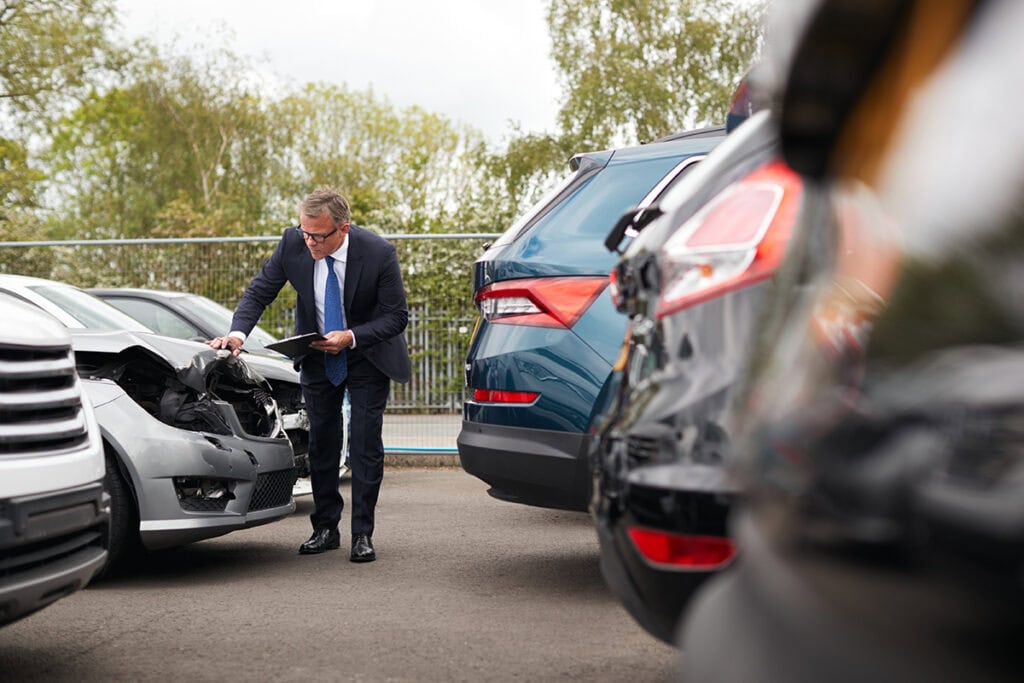
Everyone wants to know their case value. Unfortunately, each case has several unknown factors until well into pursuing the claim. Some of these factors include (1) the duration of treatment, (2) the full extent of the victim’s injuries, (3) the amount of future treatment the victims will need, (4) the amount of lost wages or diminished earning capacity will the victim suffer, (5) level of impairment, (6) cost of future medical needs, and many more such significant factors that are impossible to tell until well down the road.
Common Tactics Insurance Companies Use to Minimize Settlements
Insurance companies often employ various strategies to reduce the amount they pay on claims. Here are some of the most common tactics:
Minimizing Injuries
Claims adjusters frequently argue that your injuries were pre-existing or that the medical treatment you received was excessive. This is done to reduce the perceived severity of your injuries and, consequently, the settlement amount.
Apology Without Admitting Fault
Adjusters sometimes express sympathy for your situation using phrases like, “We’re sorry you got hurt,” without accepting responsibility. This tactic is often followed by a quick settlement offer, aiming to resolve the matter before you fully understand the extent of your injuries and rights.
Blaming the Victim
In states like Texas that follow comparative negligence laws, insurance companies may try to argue that you were partly at fault for the accident. This can significantly reduce the amount they owe you, as your percentage of fault will diminish your compensation.
Delaying the Claims Process
Insurance companies may intentionally delay the processing of your claim. This is designed to frustrate you into accepting a lower settlement and can also affect your ability to take legal action, especially if you are close to the statute of limitations for filing a claim.
Denying Claims
One of the most frustrating tactics is the outright denial of claims. Insurers might blame the entire crash on you, hoping the hassle will make you abandon your pursuit of a fair settlement.
What Should You Do After a Car Accident With an 18-wheeler in Texas?
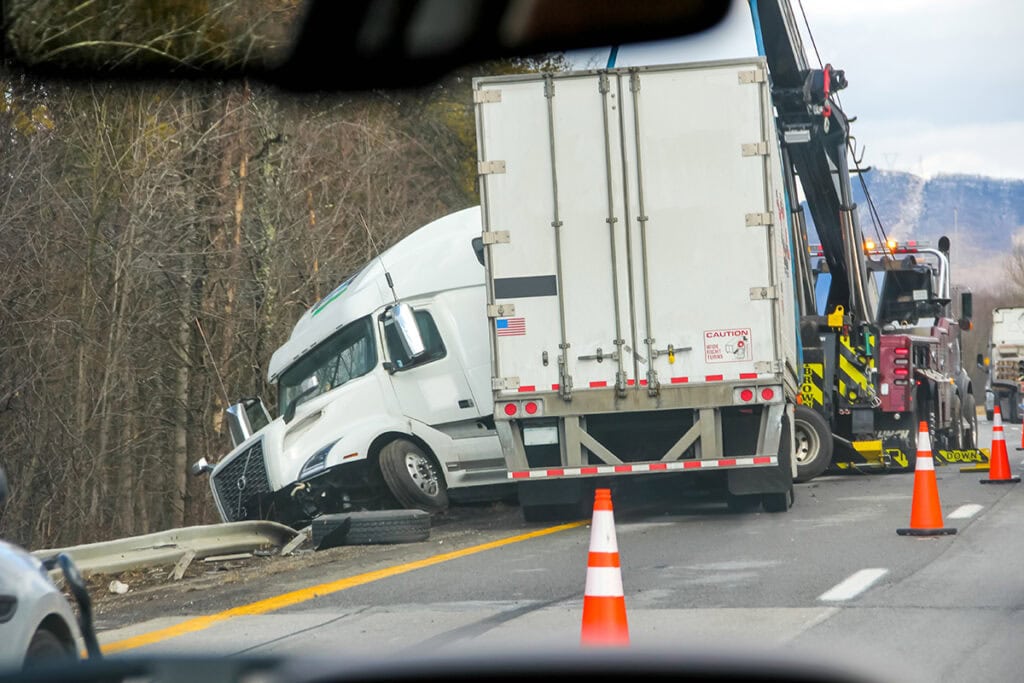
Experiencing a car accident with an 18-wheeler can be a jarring experience, but staying calm and following these essential steps is crucial to protect your rights and ensure your safety
Check for Injuries and Call 911
First, assess yourself and others for any injuries. Even if the injuries seem minor, it’s vital to call 911. An official police report and medical examination can be critical.
Move to a Safe Location
If possible, move your vehicle to the side of the road to prevent further hazards. Turn on your hazard lights to alert other drivers but stay in the vehicle until authorities arrive.
Exchange Information
Exchange the following details with the other driver:
- Name and contact information
- Insurance company and policy number
- Driver’s license and license plate number
- Make, model, and color of the vehicle
Document the Scene
Gather evidence by taking photos of:
- Vehicle damage
- License plates
- The surrounding area
- Any visible injuries
Also, jot down the time, date, and weather conditions at the scene.
Speak to Witnesses
If there are witnesses, collect their contact information and ask for a brief account of what they saw. Their statements can be invaluable later.
Notify Your Insurance Company
Report the accident to your insurance company as soon as you can. Provide them with all the information gathered and answer any questions honestly.
Seek Medical Attention
Even if you feel fine, some injuries may not be immediately apparent. Visit a healthcare professional to get a thorough check-up.
Keep Detailed Records
Maintain a file with all documents related to the accident, including:
- Police reports
- Medical bills
- Repair estimates
- Correspondence with insurance companies
Consult an Attorney
Consider consulting with an 18-wheeler accident attorney, especially if the accident resulted in significant injury or disputes over fault. Legal advice can help safeguard your rights.
Following these steps after a car accident with an 18-wheeler in Texas will help you manage the situation more effectively, ensuring your safety and protecting your interests.
Experience with Specific Injury Cases: What You Need to Know
Our car accident attorneys have substantial experience handling a wide array of injury cases, including 18-wheeler accident cases. From minor injuries like whiplash to severe conditions such as spinal cord damage and traumatic brain injuries, we’ve seen it all. By seeking skilled legal representation, you ensure that your medical expenses are adequately covered.
Why Seek a Consultation?
Even if your injury seems minor, consulting with a lawyer can make a big difference. Often, injuries that appear harmless at first can worsen over time. A free strategy session can help you understand the full scope of your medical needs and legal options.
Importance of Immediate Medical Attention
Getting medical attention immediately after an accident is crucial. Not only does this ensure you receive the proper diagnosis, but it also helps in predicting future complications.
Key Points:
- Wide Range of Experience: Experience with everything from minor to severe injuries.
- Free Strategy Sessions: Understand the long-term implications of your injury.
- Immediate Medical Care: Crucial for accurate diagnosis and treatment.
Don’t wait for your injuries to worsen. Reach out for a consultation and ensure you get the care and compensation you deserve.
Will You Incur Any Out-of-Pocket Expenses When Hiring a Car Wreck Lawyer After an 18-wheeler Wreck?

Navigating the aftermath of a car accident with an 18-wheeler can be overwhelming, especially when you’re worried about legal fees. The good news is that many 18-wheeler and car wreck lawyers offer a fee structure designed to alleviate financial stress.
Common Payment Structures
- Contingency Fees: Most car accident attorneys work on a contingency fee basis, meaning you don’t pay any upfront costs. They only get paid if you win your case.
- Free Strategy Sessions: Many firms provide initial consultations at no charge. This allows you to discuss your case and understand your options without any financial commitment.
- No Out-of-Pocket Fees: The lawyer covers expenses like court costs and investigation fees and deducts from your settlement or award.
Financial Transparency
One of the benefits of this fee structure is financial transparency. You’ll know upfront what to expect, with no hidden costs or surprise charges.
You can focus on recovery while your lawyer handles the legal battle.
Why Should You Hire Snellings Law to Handle Your 18-Wheeler Case?
In the aftermath of an 18-wheeler crash, getting treatment and healing should be your focus. You shouldn’t have to worry about insurance companies and liability. You need an 18-wheeler accident firm that can take those stresses off your plate so you can focus on getting better.
At Snellings Law, we have a team of experienced, compassionate 18-wheeler accident attorneys. We’ve seen firsthand what damage 18-wheelers can do. Our team of 18-wheeler accident attorneys has the experience needed to advocate for you while you heal. We offer free strategy sessions with one of our 18-wheeler wreck attorneys so we can assess your damages and figure out the next steps.

